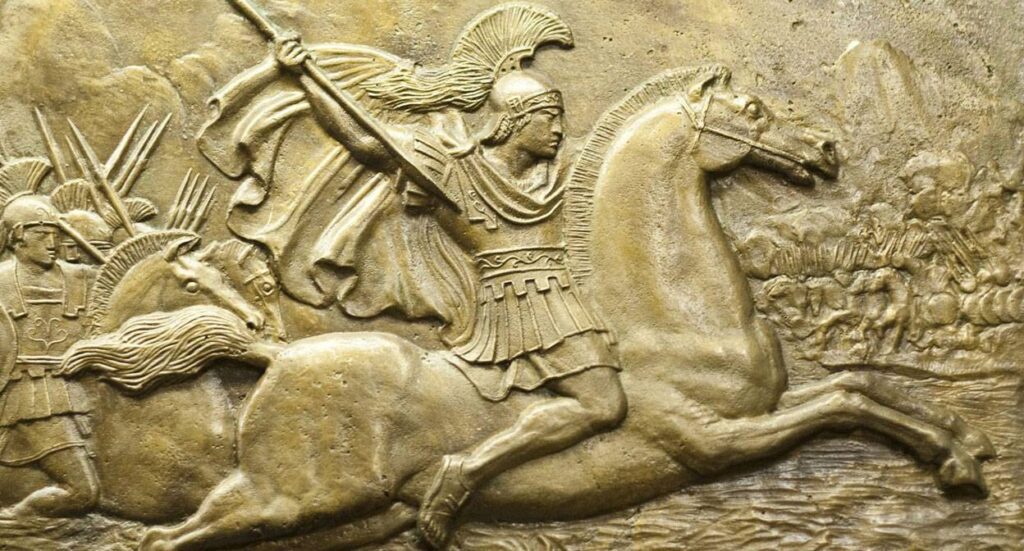Alexander the Great, also known as Alexander III of Macedon, was a legendary military leader born in 356 BC in Macedonia. He was educated by Aristotle and ascended to the throne at just 20 years old after his father’s assassination. Alexander wasted no time in launching military campaigns to fulfill his father’s dream of conquering the Persian Empire. Over the next ten years, he conquered vast territories, defeated powerful empires, and spread Greek culture throughout the known world. Known for his brilliant military tactics and strategies, Alexander’s legacy as a visionary conqueror continues to inspire generations of leaders and strategists today.
Alexander the Great: Conqueror and Tactician Extraordinaire
Alexander the Great, also known as Alexander III of Macedon, was one of the greatest military leaders in history. Born in 356 BC in Pella, the ancient capital of Macedonia, he was the son of King Philip II and Queen Olympia. Alexander’s early education was overseen by the renowned philosopher Aristotle, who instilled in him a love for learning and a passion for knowledge.
Early Military Campaigns
At the age of just 20, Alexander ascended to the throne after the assassination of his father. Determined to fulfill his father’s dream of conquering the Persian Empire, Alexander wasted no time in launching a series of military campaigns. In 334 BC, he crossed the Hellespont and invaded Asia Minor, defeating the Persian forces at the Battle of Granicus. This victory marked the beginning of his legendary conquests.
The Conquest of Asia
Over the next ten years, Alexander and his army marched through Asia, conquering vast territories and defeating powerful empires. He defeated the Persian King Darius III at the decisive Battle of Issus in 333 BC and went on to capture the rich cities of Tyre and Gaza. In 331 BC, he decisively defeated Darius at the Battle of Gaugamela, securing his hold on the Persian Empire.
The Legacy of Alexander
Alexander’s conquests spread Greek culture throughout the known world, a period known as the Hellenistic era. He founded over 20 cities, many of which bore his name, including Alexandria in Egypt. These cities became centers of learning and culture, promoting the exchange of ideas and knowledge between East and West.
Tactician Extraordinaire
What set Alexander apart from other conquerors was his brilliant military tactics and strategies. He employed a combination of speed, maneuverability, and surprise to outwit and outmaneuver his opponents. His use of the phalanx, a tightly-packed formation of heavily armored infantry, was particularly effective in battles against larger armies.
One of Alexander’s most famous battles was the Siege of Tyre in 332 BC. The city was located on an island off the coast of Phoenicia, making it virtually impregnable. Undeterred, Alexander devised a daring plan to build a causeway from the mainland to the island, allowing his troops to breach the walls of the city and conquer it after a seven-month siege.
Death and Legacy
In 323 BC, Alexander fell ill and died in Babylon at the age of 32. His death marked the end of an era and sparked a power struggle among his generals, known as the Diadochi, who divided his empire among themselves. Despite his untimely death, Alexander’s legacy lived on through the spread of Greek culture and the enduring myth of his greatness.
Today, Alexander the Great is remembered as one of the greatest military leaders in history, a visionary conqueror who forever changed the course of civilization. His legacy continues to inspire generations of leaders and strategists, proving that the legacy of an extraordinary leader can endure the test of time.
